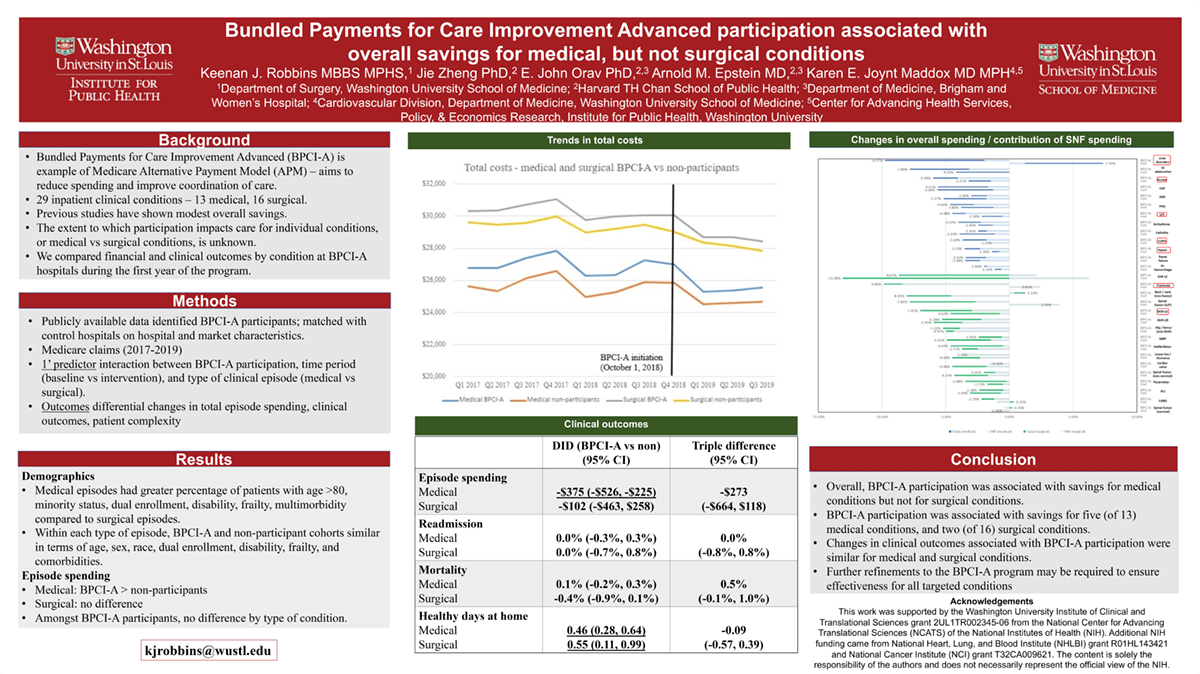
Introduction: The Bundled Payments for Care Improvement Advanced (BPCI-A) program is an alternative payment model (APM) which seeks to reduce spending and improve coordination of care for Medicare beneficiaries. The first model year of this program offered 32 clinical conditions from which participants could choose to enroll. It is unknown the extent to which BPCI-A participation affects care for individual conditions, or if there are differential effects on medical or surgical conditions. In this study, we compare financial and clinical outcomes between medical and surgical conditions treated at BPCI-A participating institutions during the first year of the program.
Methods: We used publicly available data on BPCI-A participation. We identified control hospitals by matching on a series of hospital and market characteristics. We used Medicare claims from 2017-2019 to identify patients admitted for any of the 29 inpatient conditions in the program, and categorized them as medical or surgical/procedural. The primary predictor of interest was the three-way interaction between BPCI-A participation, time period (baseline or intervention), and the type of clinical episode (medical or surgical). The primary outcome was the change in total episode spending. Secondary findings included changes in clinical outcomes and patient complexity.
Results: BPCI-A participation was associated with significantly decreased total episode spending for medical conditions ($202 per episode per quarter, p<0.001), but not for surgical conditions ($26, p=0.696, triple difference $177, p=0.024). Participation was associated with significant overall savings for five of thirteen medical conditions and two of sixteen surgical conditions. There were no differential changes in overall clinical outcomes under BPCI-A for medical or surgical conditions, including 90-day readmission, mortality, and healthy days at home.
Impact: As designed, BPCI-A may not have incented optimal care delivery innovations for surgical conditions in its first year. Further research is warranted to determine if bundled payments are a viable long-term strategy to improve costs and clinical outcomes for Medicare beneficiaries.
Organization: Washington University in St. Louis
Robbins KJ, Zheng J, Orav EJ, Epstein AM, Joynt Maddox KE